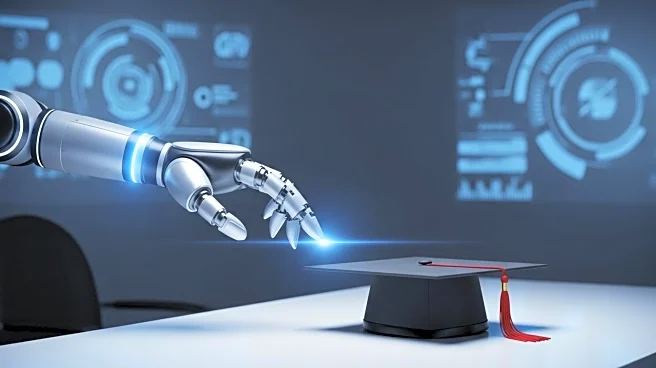What's Happening?
The increasing integration of artificial intelligence in various sectors is impacting the job market, particularly for recent graduates. Olivia Fair, a 2019 graduate, has struggled to find employment, facing diminished demand for entry-level positions due to AI advancements. Laura Ullrich from Indeed reports a 6.7% decline in job postings, with a significant drop in tech sector opportunities. This trend, exacerbated by AI, has made it difficult for young job seekers to secure positions. MIT economist David Autor highlights the debate over AI's impact, noting both risks and rewards, while emphasizing the need for human judgment in roles that AI cannot fully replicate.
Why It's Important?
The rise of AI poses challenges for the workforce, particularly affecting recent graduates who are entering a competitive job market. The decline in job postings, especially in tech, suggests a shift in employment dynamics, with AI replacing certain tasks traditionally performed by humans. This development raises concerns about job displacement and the need for new skill sets. However, it also presents opportunities for new job categories to emerge, potentially in areas like renewable energy or medical specialties. The situation underscores the importance of adaptability and proactive career strategies for young job seekers.
What's Next?
Recent graduates are encouraged to pursue internships and leverage connections to improve their employment prospects. As AI continues to evolve, the balance between human labor and machine capabilities remains a critical conversation. Companies may need to reassess their hiring strategies and consider the integration of AI in their operations. The potential emergence of new job categories could offer opportunities for those willing to adapt and acquire new skills. The ongoing debate about AI's impact on employment will likely influence future workforce policies and educational programs.









